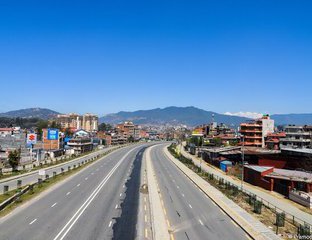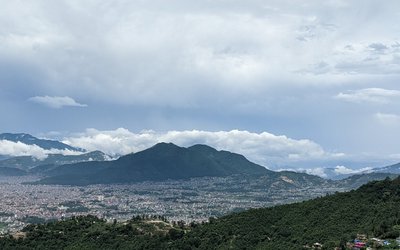
The world stands together in the face of the COVID-19 pandemic. The ramifications of this global crisis have extended from the health spectrum to the social, psychological, economic, environmental and other aspects. Taking a fast track to being a catalyst to a complete lockdown from big cities to small villages, the coronavirus has been the catastrophe of the decade, if not the century. Affecting a total of 204 countries in the world, there have been 1030,654 cases, leading to the death of 54,231 people. These cases have been increasing by the minute, as the virus spreads from social contact. Apart from being the number one cause of death right now, the impacts it has on people and their lives are for worse than imaginable.
Social aspect
Humans, as social animals, function better with interactions and support. Sharing our problems help us come up with solutions. Similar to this disaster, the 2015 earthquake taught us Nepalese the power of social solidarity. Not having the option to rely on people around them takes away the comfort of identifying as a social being. I only compare these two events to show how the restriction of social contact has worsened the condition leading to hysteria. Although this comes with meaning and reasons, social distancing disrupts the basic sociological theory of functionalism. We as functioning members of the society are confined from following our roles, hence, causing an uneven society. While not undermining the nature of this outbreak, these sudden changes have brought forward issues in the structure of our society.
Psychological aspect
The fear of COVID-19 doesn’t stop at physical impacts but extends to psychological ones. The anxiety has spread more than the virus itself, impacting people all over the world. Firstly, being a fresh virus, the reasons and solutions for the coronavirus are less known. Without much data on the virus, people don’t know what to fear. This has led to mass hysteria and theorization. People are scared of what might happen and not having the tools for controlling the condition has left people vulnerable. The fear of COVID-19 has crossed borders with people doing whatever it takes to stay safe. Nepalese from all over the world are trying to come back home in hope of security and safety. This psychological pressure has made the conditions worse with people speculating on the condition.
Economic aspect
Amongst all of the factors that have come to light in these uncertainties, the economic facet of this pandemic is most visible. From factories to offices, the fear of getting infected had been a disturbance for weeks. As per now, it’s been a week since the country has been in a total lockdown. This has resulted in the downfall of the economy. People are over stocking basic goods, cooking gas as well as fuel. The government not being a strong figure in the face of crisis in the past has led to disbelief in the government. Despite a handful of companies that are operating online, almost all of the services are closed down. This has directly impacted people of all social classes. The most impact, however, has been on daily wage workers. They are left at the mercy of people who might show some compassion or worse, the government. The extension of this lockdown has further left people in fear of a life without economic security. Only time will show the true impacts of this economic debacle.
Environmental aspect
The COVID-19 has led to shutdowns all over the world. The only positive development of the lockdown has been the growth in the environmental quality. The air quality has improved drastically in Kathmandu. There have been reports of the river in Venice being cleaner than ever. Also, the ozone layer above the North Pole is healing slowly. The pollution level has dramatically dropped everywhere. This brings forth the question if this was the level of intensity needed to save our environment. Hopefully the end of this lockdown will not be the end of people caring for the environment. We as members of this society need to be optimistic and not let people lean to their old ways by choosing enhancement at the cost of the environment.
The one thing that is certain in this condition is that, this too shall pass. Compared to previous encounters with similar situations, we have better resources at our disposal. We have the privilege of information via Internet as well as social networking sites. As the world stand together today, we stand with the knowledge that we are all in the same boat and will need each other to survive. With this event going down in history, we shall be the best we can and beat this virus yet embrace the positive changes it has brought forward.
















